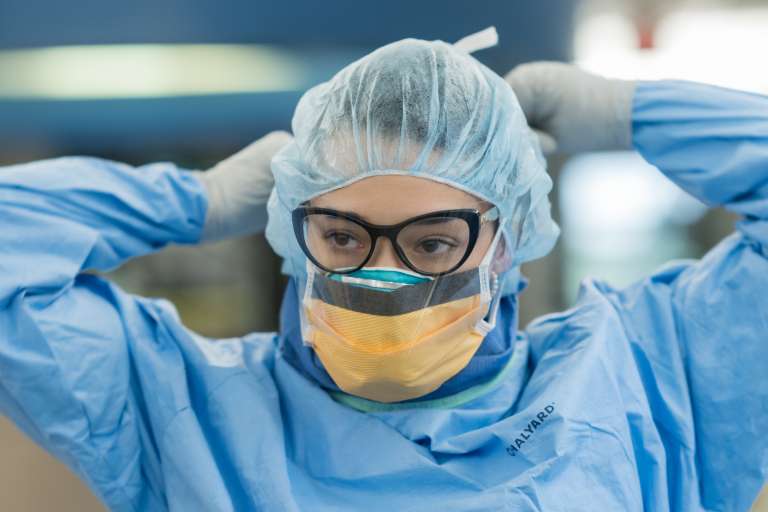Through a newly-funded National Science Foundation Rapid Response Research, or RAPID, grant, researchers in the University of Florida departments of environmental and global health and epidemiology are on a mission to improve personal protective equipment, specifically face masks, that are being widely used to protect health care workers and the broader community from infection with SARS-COV-2, the virus that causes COVID-19 illness.
Led by Tara Sabo-Attwood, Ph.D., John Lednicky, Ph.D., and Cindy Prins, Ph.D., M.P.H., in collaboration with Navid Saleh, Ph.D., of the University of Texas department of civil, architectural and environmental engineering, researchers are using nanomaterials — very small synthetic particles — that are wrapped in soap molecules designed to kill the virus once it is filtered by the mask. In the current pandemic, many health care facilities do not have adequate supplies of PPE, and workers in many facilities are being asked to re-use masks well beyond their intended use. In addition, most masks can capture viruses, but not necessarily kill them.
“It is possible that during long re-use periods, the masks harbor virus particles that may still be infectious,” said Sabo-Attwood, chair of the department of environmental and global health in the UF College of Public Health and Health Professions and a member of the Emerging Pathogens Institute.
The team hopes to use nanotechnology to improve both the capturing and killing of virus particles that will allow for extended use and better protection. The researchers realize that they need to design more efficient PPE that does not make it more difficult for the user to wear.
“It’s important for health care workers to have protective equipment, but if that equipment is very uncomfortable or gets in the way of someone doing their job, then PPE compliance decreases,” said Prins, an epidemiologist in the College of Public Health and Health Professions and College of Medicine and PHHP’s assistant dean for educational affairs.
Bridging engineering technology and applied public health to design better PPE that is appropriate for real-world situations has been a primary goal of the team from the start, Sabo-Attwood said.
“Bringing together experts in engineering, nanotechnology, epidemiology, public health practice, virology and infection control allows us to work in tandem to reach this goal,” she said.
This story originally appeared on UF College of Public Health & Health Professions.

